Modern Independent Cafe: born of suffering and died of feelings?
Among those who run cafes, those who focus on boutique coffee are still in the minority, although the number has soared in the past two years. Among the people who choose boutique coffee as the main business body, a large part of them ride on the third wave with a passion for boutique coffee, throwing almost all their dreams, money, and even life into a small shop.
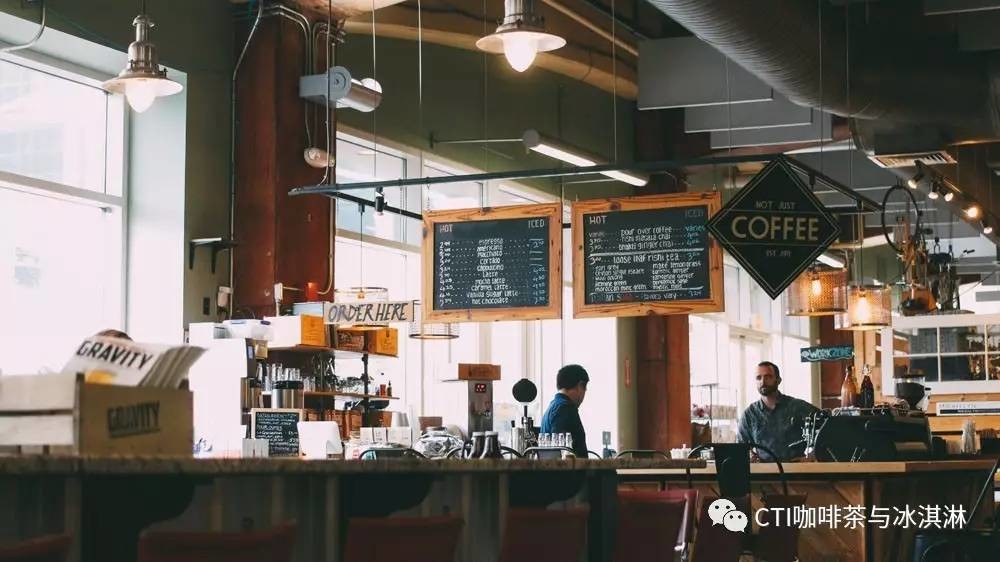
In an article by James Hoffmann at the end of 2015 about the current state of boutique coffee, there was a passage that I thought summed up part of the motivation of enthusiastic and dreamy coffee people to open a shop. In short, "we" (baristas) hope to reproduce the revolutionary moments that truly delicious coffee once brought to us for more people at all costs.
As a result, the almost religious attention to this point makes the owners of many coffee shops stay at the level of baristas or managers forever, and makes the real operators become scarce resources in the young boutique coffee industry. Opening a boutique cafe is essentially running a business. Although not everyone wants to turn their small shop into a global chain empire like Starbucks, since it is a business, you always have to make at least a small profit in order to keep yourself and your dreams alive.
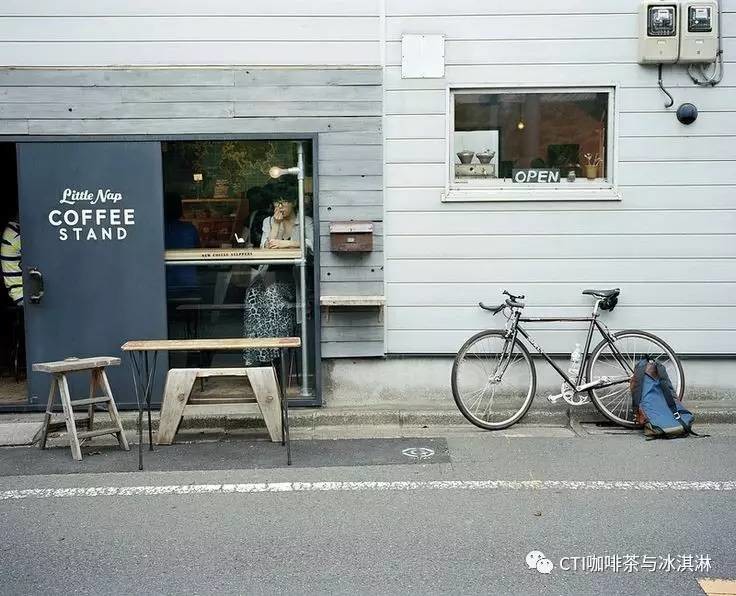
The motivation for opening a store can be the simple idea of "I want to sell really good coffee", but when deciding to turn motivation into action, pure thinking must be in line with reality. Just as people need to have correct values, doing business requires a clear brand core concept, which often acts as a bridge for dreams to land. All other business-related strategies should be extended and expanded closely around the core concepts of the brand, such as decoration style, target customer positioning, resource allocation, product mix, and so on.

Empty talk spoils the country. Let's take two relatively new cafes in London as examples to analyze how a clear brand core concept makes their dreams fall to the ground and gets half the result with twice the effort on the way to business.

Rebellious mainstream VS distraction service
In 2013, several college friends left their stable careers at the same time to devote their passion for boutique coffee to London's first Black Sheep Coffee. The London boutique coffee industry in 2013 has become a booming business, with both solid and powerful predecessors such as Prufrock, TAP and Kaffeine, and rising stars such as Noble Espresso and Mother's Milk who will become legends start business in the same year.
Today, more than three years later, Black Sheep Coffee, which did not get its hands on baked beans, has opened nine stores in London in fierce competition. While Noble Espresso and Mother's Milk, of the same age, have changed careers completely and the other has disappeared. In terms of the phased success of its operation, Black Sheep Coffee has more or less benefited from the actual management experience of the boss group in major enterprises, including the financial industry. These experiences enable Black Sheep Coffee to have an overall brand image of 1: 1 > 2 from the very beginning, and maximize its unique value to customers and the market by exporting values with "rebellion" as the core. It's easy to claim that your cafe is different, but there are not many people who are as loyal and rebellious as Black Sheep Coffee in terms of name, cultural core and business content.
At the heart of Black Sheep Coffee's corporate culture is all the letters on his home website: Leave the Herd Behind. When it comes to coffee, Black Sheep Coffee is the first coffee shop in London to serve daily products with a boutique Luodou (the name of this bean store is very simple and rough, Robusta Revival, Luodou Renaissance). Black Sheep Coffee's ingenious use of a cup of coffee satisfies the rebellious mentality of most societies suppressed by day-to-day rules and responsibilities, and the rapid expansion after gaining a foothold at the initial stage seems reasonable.
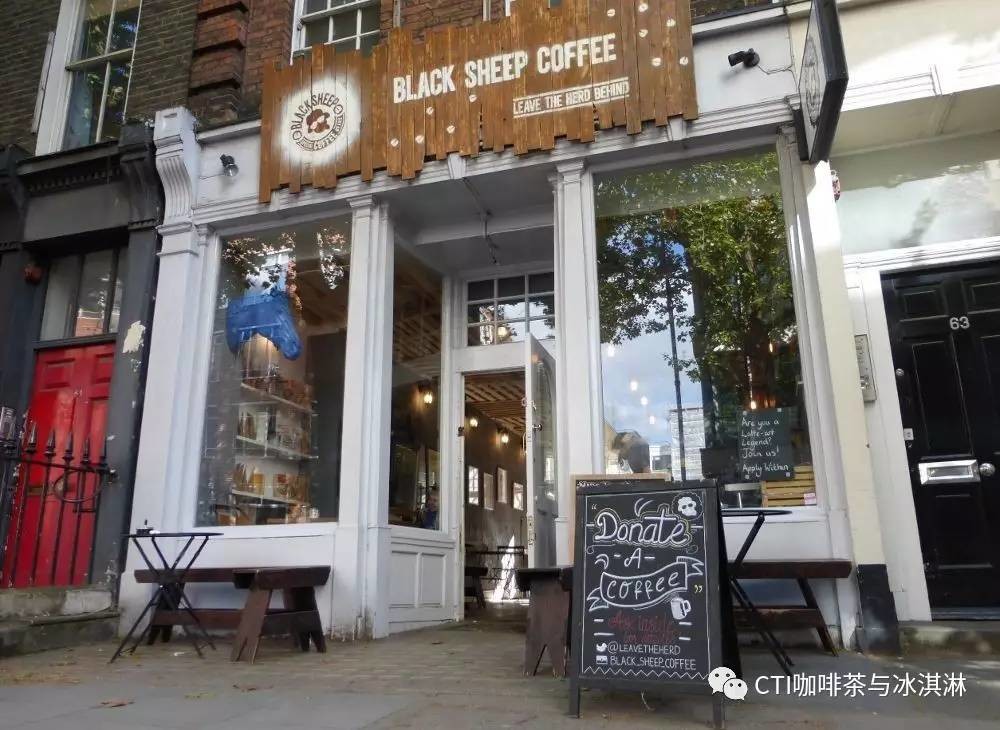
Small workshop-style independent cafes have the practice of small shops at the initial stage of operation due to various conditions; then new stores with strong capital backing also need to allocate abundant resources reasonably according to their own brand concept.
The Hubbard and Bell Coffee Bar, which opened in 2014, is also a slightly different existence, located in the lobby of the boutique hotel The Hoxton Holborn, and Hubbard and Bell subverts people's perception of hotel catering to some extent. Although boutique hotels are different from the established hotels, they still have to abide by the hospitality of the hotel industry in the end. Because of the particularity of close contact with customers, the hotel industry has particularly high requirements on how to balance the service humanized, meticulous, and maintain a sense of security distance to guests.
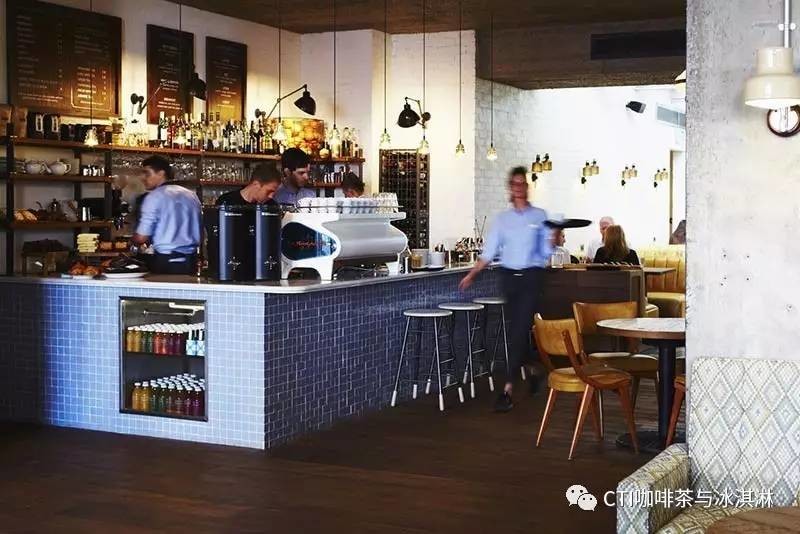
The Hoxton's two London chains are all managed by Soho House Group, a world-renowned private clubhouse group. Hoteliers who love boutique coffee hit it off with club owners who are aware of the escalating demand for coffee from their members, and the rich wayward opened the first pilot boutique coffee bar in The Hoxton Holborn, in the heart of London's West end. Unlike those baristas who are full of personality in independent small cafes, baristas in uniform standing behind the Hubbard and Bell bar give guests more of a standard service industry impression, they always keep a customer-controlled distance, and their professionalism will inadvertently nourish everything quietly. If you order a cup of black coffee, they will politely ask Americano or filter; if you order any classic Italian milk coffee, they will smile and remind you that the default products in the store are all double condensed. If you need a single concentrated, please indicate it in time. If you are lucky enough to order handcups when the store is not very busy and have some knowledge of boutique coffee, then you are likely to have a very interesting professional conversation with the barista.
Hubbard and Bell not only perfectly embodies the characteristics of the hotel industry in terms of service, takes care of the different understandings and needs of hotel guests, passers-by and Londoners from all over the world, but also makes great efforts in the Italian blending of daily products. It took more than two years for Soho House Group's coffee team to finalize the House Espresso recipe for Soho House Group with Origin, a British boutique coffee roaster supplier, which features a delicious Italian blend that suits most people around the world.
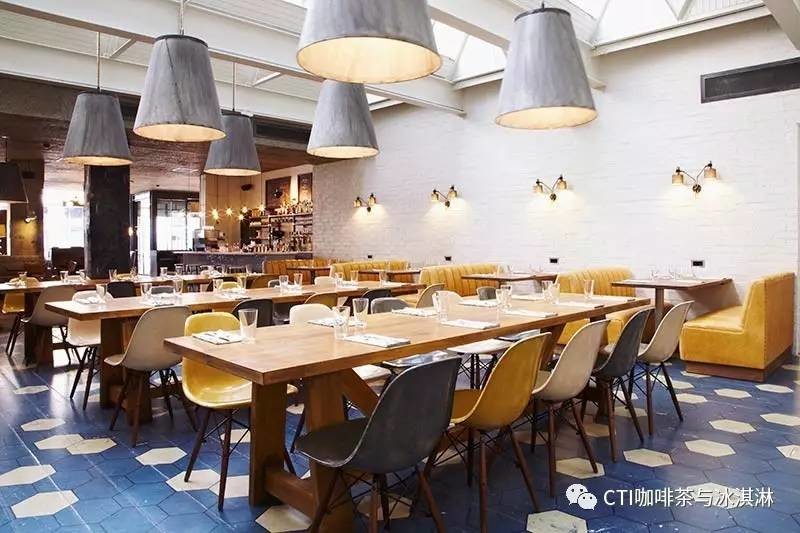

The balance between ideal and business
Whether it is the rebellious mainstream Black Sheep Coffee or the symbiotic combination of hotel and boutique coffee Hubbard and Bell, they all have their own clear brand concept at the beginning of their business. Not only that, most of their future business decisions are based on their own brand concept as a starting point, while using a clear brand concept to save hidden costs such as time and manpower in the decision-making process, one choice after another closely linked to the core also makes their brand concept more mature and perfect, with a cycle of conscience, mutual benefit and mutual benefit.
Today, many boutique cafes still open in different cities around the world every month, but at the same time a considerable number of stores are closed permanently. In the tide of boutique coffee, the waves sweep the sand. However, the big waves are not full of dreams, but those unrealistic, not clear and firm enough to let the dream fall to the ground of the intermediary. Decide to open a cafe, find a suitable brand concept, and in the future business do not forget the original ideals and aspirations of the thorough implementation of this brand concept, about to ensure the success of the good start.
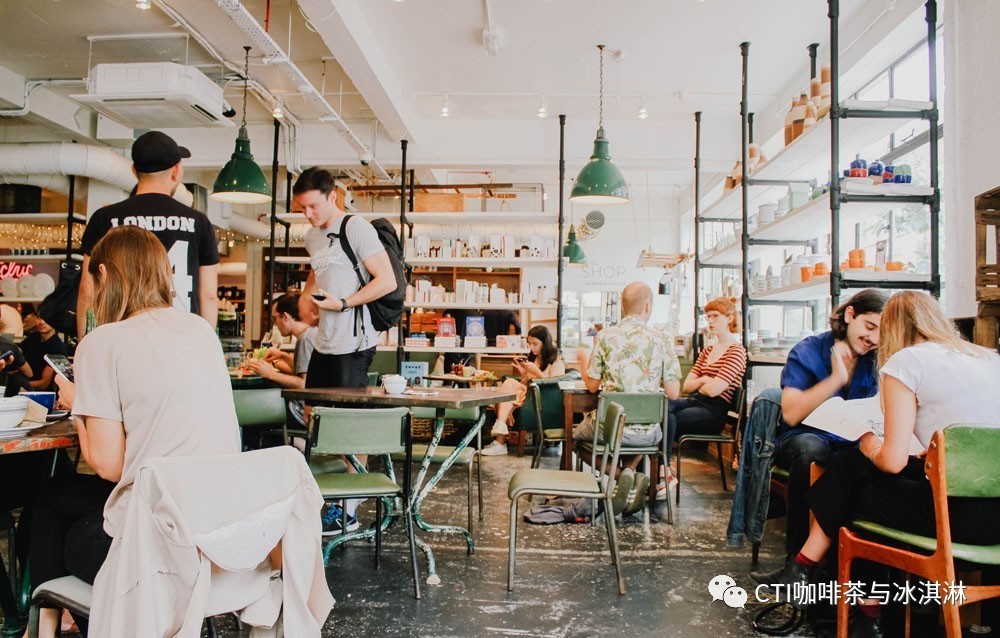
Author of the article:
Yiping, who often lives in Shanghai, travels everywhere and is a tracker of coffee and gourmet food.
The original article is published in CTI Coffee, Tea and Ice Cream magazine No. 57
Important Notice :
前街咖啡 FrontStreet Coffee has moved to new addredd:
FrontStreet Coffee Address: 315,Donghua East Road,GuangZhou
Tel:020 38364473
- Prev

Depth good article | how far are we from "cult coffee"?
How many times have you heard these inexplicable arguments? Individual coffee is more advanced, and espresso is out of date. Those who practice drawing flowers every day, do you understand the extraction study? Siphon is the essence, you play European and American pie cooking is too superficial. Whenever I see a similar argument, there is always a feeling that those standing opposite are either like-minded friends or enemies of demons and ghosts. Just
- Next

Vienna cat cafe cat show lazy cute
Cats rest in a cat cafe in Vienna, Austria, May 3, local time.
Related
- What documents do you need to go through to open a coffee shop? coffee shop coffee shop certificate processing process
- How to purchase Coffee beans in small Cafe how to choose a suitable supplier for domestic Coffee supply Company
- How to drink Starbucks Fragrance White Coffee? how to make Australian White Coffee? what Italian coffee beans are recommended?
- The Story of Flora Coffee: the name of Flora Coffee Bean and the implication of the Flowers on Florna Coffee
- How much does a cup of coffee cost? How much is the profit of a cup of coffee? What is the profit of the coffee shop in a year?
- Yunnan small Coffee, known as "fragrant Coffee", introduces the characteristics of Alpine Arabica Coffee producing areas in Yunnan, China
- 2023 latest Starbucks full menu price list how much is a cup of Starbucks coffee what is better to drink the most popular hot and cold drinks recommended
- Starbucks different kinds of Coffee Price list Starbucks menu 2023 Top Ten Best drinks in Starbucks
- Starbucks Spring praise Comprehensive matching Coffee Bean theme Story Packaging implication and taste description
- The cost of a cup of coffee latte American coffee cost price and selling price

